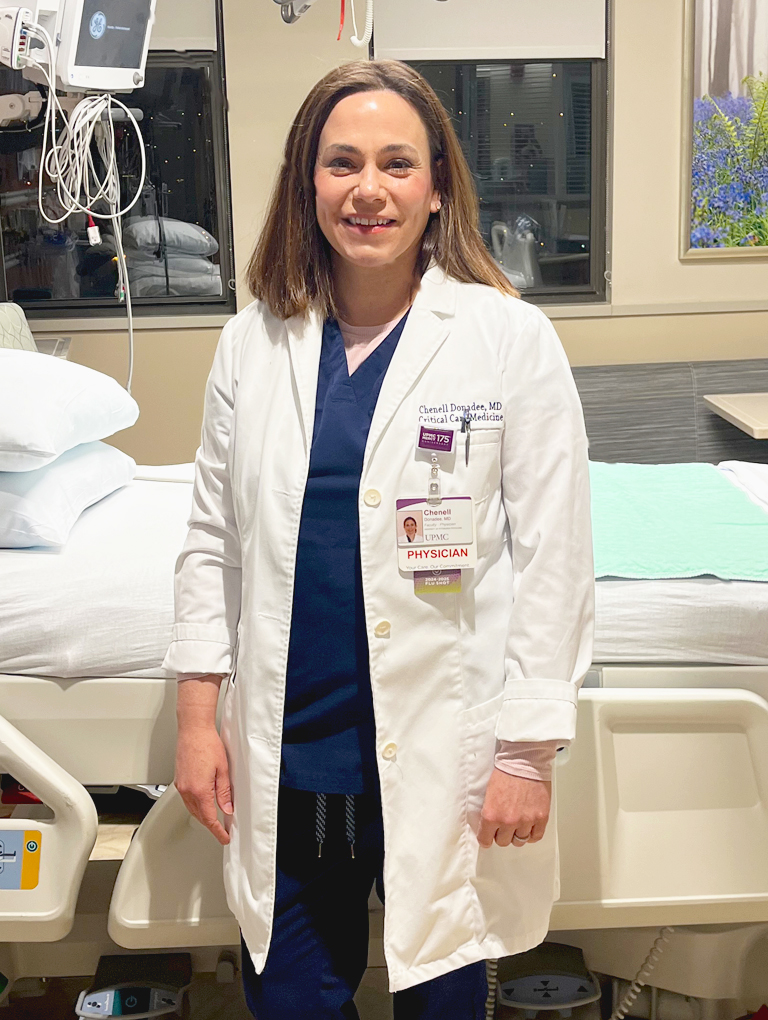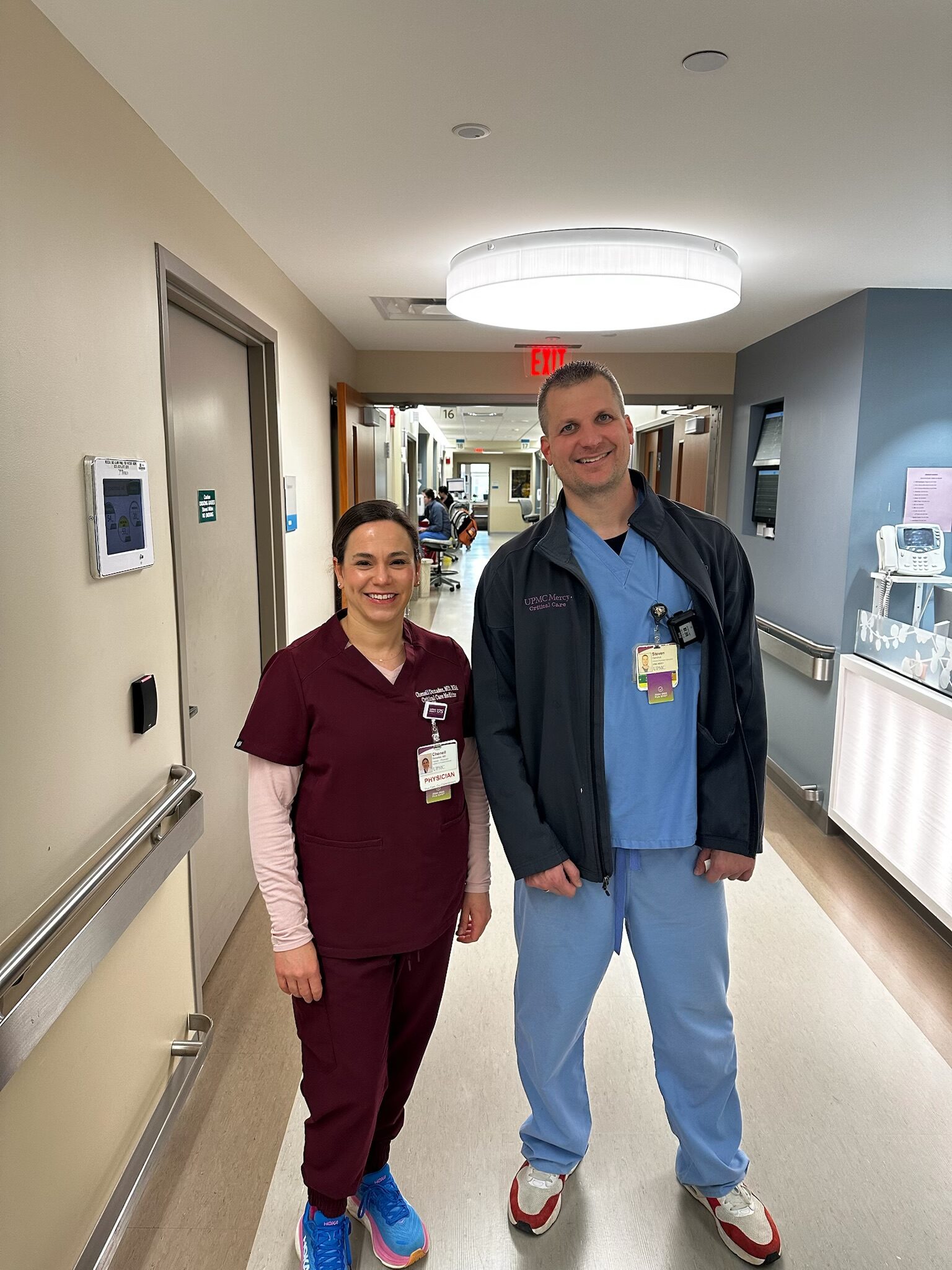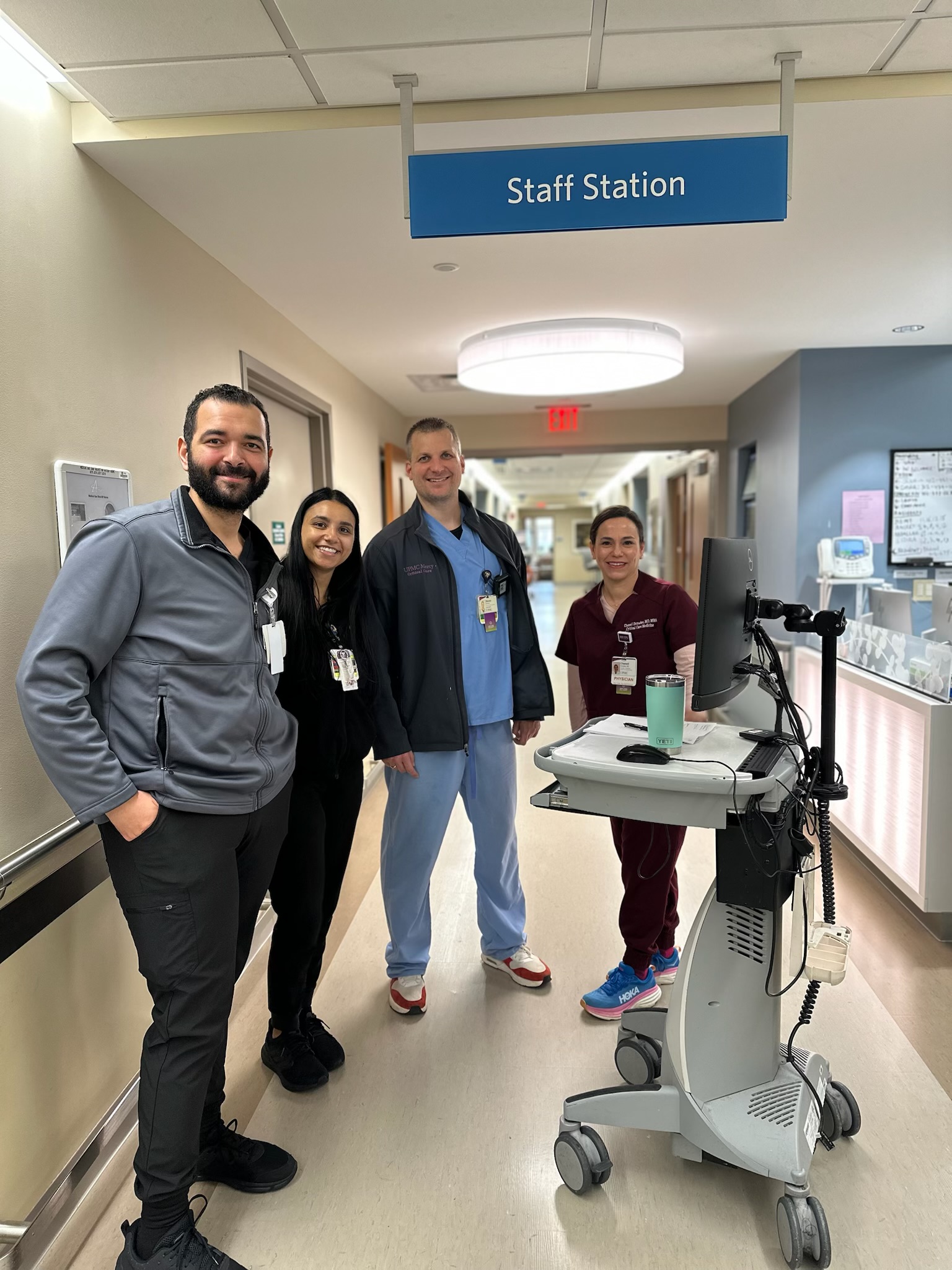


PARTNERS IN PHARMACY
Chenell Donadee,
MD, MBA
“Pharmacists are an integral part of making the plan and treating the patient. It helps with length of stay. It helps with costs. It helps with patient outcomes. It helps avoid adverse events.”
-Dr. Chenell Donadee
Ask Dr. Chenell Donadee to depict her ideal ICU team and she’d draw a picture of three people: an attending physician like herself, a bedside nurse, and a clinical pharmacist.
As an intensivist, Dr. Donadee treats critically ill patients with acute respiratory failure, shock, sepsis, stroke, seizure, brain and spinal cord injury, and more at UPMC Mercy in Pittsburgh. And since 2011, her partner has been pharmacist Steven Ganchuk.
“I’ve practiced with Steve so long that it’s hard for me to imagine a world without a clinical pharmacist. He is as big a part of the medical team as anyone. He’s always coming up with great ideas and suggestions that we’ve not thought of.”
Medication interactions are a common problem in the Medical-Neuro ICU where Dr. Donadee works. She recalls the case of one patient who wasn’t waking up well after a series of seizures. The situation was perplexing until Steve made the rounds and noticed the culprit: a concurrent antibiotic, driving up the levels of their anti-epileptic medication.
Ask Dr. Chenell Donadee to depict her ideal ICU team and she’d draw a picture of three people: an attending physician like herself, a bedside nurse, and a clinical pharmacist.”
“Regimens are so complex and complicated these days. It’s a lot to pay attention to and a lot to coordinate … and it could be dangerous if not done well.”
Pharmacy knowledge and expertise also shine through when it’s time to discharge a patient, Dr. Donadee shares.

“Pharmacists think about what’s really going to work for the patient, for example, the medication that you take once a day or the medication you take four times a day? They will also adjust a regimen so it works with insurance — because if the patient doesn’t have coverage, they’re not going to take their medication. These fine details make a big difference for the patient.”
After years of working with and championing clinical pharmacists, Dr. Donadee became Associate Medical Director of the UPMC Pharmacy Service Line in April 2023. Her clinical experience informs her health-system leadership and vice versa — and the role has given her even more appreciation for the pharmacy profession.
“I help the team out anywhere pharmacy and physicians intersect, which is pretty much everywhere. By working together, we’re able to accomplish a lot that maybe we couldn’t have before.”

Dr. Donadee’s first major project in this administrative role was forming a unified health system pharmacy and therapeutics (P&T) committee to oversee medication use and manage drug shortages across UPMC’s 42 hospitals. More recently, her interdisciplinary team has facilitated outpatient vaccines and explored new treatments such as cell and gene therapies.
“Pharmacists and physicians are working closely together to bring these really exciting therapies to our patients. In 10 years, there’s going to be things that you and I can’t imagine — and the pharmacists are going to be the center of that. It’s a field with opportunity for constant growth and change.”
Dr. Donadee can remember a time, not too long ago, when having a clinical pharmacist embedded in the ICU was a “treat.” She’s thankful it’s now standard accepted practice.
Pharmacists and physicians are working closely together to bring these really exciting therapies to our patients”
“Pharmacists are an integral part of making the plan and treating the patient. It helps with length of stay. It helps with costs. It helps with patient outcomes. It helps avoid adverse events. They are teaching my resident physicians and I’m teaching theirs. From an operational standpoint, they’re making sure that everybody gets their meds everywhere in the hospital, how they need it, and when they need it.”
Ensuring safety, embracing innovation, and enhancing patient outcomes: From this physician’s perspective, that’s what it means to be your pharmacist.
